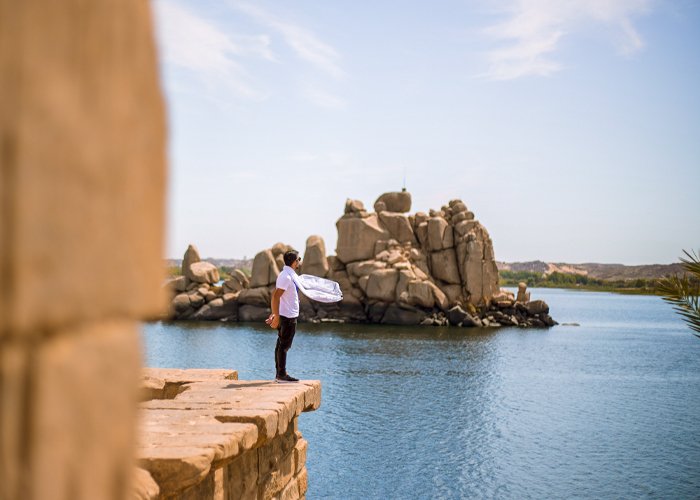Elephantine Island
Elephantine Island is one of the most fascinating and historically rich destinations in southern Egypt. Located in the Nile River, directly opposite the city of Aswan, this island has served as a crucial cultural, religious, and political center for thousands of years. Its strategic location at Egypt’s southern frontier made it a vital outpost during ancient times, especially as a hub for trade and diplomacy between Egypt and Nubia. Today, Elephantine Island attracts travelers who are drawn to its deep heritage, scenic beauty, and the opportunity to experience a unique blend of ancient ruins and vibrant local life.
A Living Timeline of Civilizations
The layered history of Elephantine Island is visible in every stone and artifact. It was once home to an ancient Egyptian settlement dating back to the Early Dynastic Period. Archaeological discoveries on the island include temples, fortresses, and residential areas, many of which reveal how life evolved over thousands of years. The ruins of the Temple of Khnum, one of the main gods worshipped on the island, stand as a testament to the spiritual significance of this location. The temple complex also includes shrines dedicated to Satet and Anuket, forming a triad of deities associated with the Nile and fertility.
Sacred Ground and Symbolism
The island’s name—Elephantine—derives from the shape of the granite boulders that surround it, which resemble elephant tusks. But beyond its name, the island held immense symbolic and religious weight in the ancient world. It was believed to be the source of the Nile, and this spiritual association made it a sacred site for the ancient Egyptians. Nilometers, used to measure the river’s water levels, can still be seen on the island today, showing the advanced hydrological knowledge of its early inhabitants. These structures were essential in managing agricultural cycles and ensuring the prosperity of the region.
An Archaeologist’s Treasure Trove
Ongoing excavations by international archaeological teams have unearthed a wealth of historical data, providing insights into the daily life, religious practices, and international relations of ancient Egypt. Among the most significant finds are papyri written in Aramaic by a Jewish community that once lived on the island during the Persian period. These documents offer a rare glimpse into a multicultural society where Egyptians, Persians, Nubians, and Jews lived and interacted in a relatively harmonious setting. This aspect of Elephantine Island makes it a compelling location for those interested in the coexistence of ancient civilizations.
Traditional Nubian Life Alongside Antiquity
While much of Elephantine Island is devoted to archaeological exploration, it is also home to living communities, particularly Nubian families who have inhabited the island for generations. Their brightly painted homes, distinct cultural customs, and warm hospitality offer an immersive experience for visitors. Walking through the narrow alleys of the Nubian village, one can observe daily life that remains closely tied to the rhythms of the Nile. Local guides, often from the island itself, provide authentic narratives and personal stories that connect the present with the past in a meaningful way.
Scenic Beauty and Riverside Tranquility
Elephantine Island is not only historically important—it is also incredibly beautiful. Lush palm trees, gardens, and the shimmering waters of the Nile surround the island, creating an atmosphere of peace and serenity. The pace of life here is slow and unhurried, making it an ideal place for travelers seeking reflection and relaxation. Sunset views from the island are especially enchanting, with the colors of the sky mirrored on the river and the silhouettes of feluccas sailing by. For photography enthusiasts and nature lovers, Elephantine Island is a visual delight.
Getting There and What to Expect
Access to Elephantine Island is straightforward, typically by a short felucca or motorboat ride from the Aswan Corniche. As soon as you arrive, the contrast between the bustling city and the calm island becomes apparent. There are no cars on the island, which enhances its tranquil feel and preserves its traditional lifestyle. Visitors are encouraged to explore on foot, which allows for a more intimate connection with both the landscape and its people. Local markets offer handmade crafts, and small eateries serve traditional Egyptian and Nubian dishes, making for a well-rounded visit.
A Stop Not to Be Missed in Your Egyptian Journey
For travelers exploring Aswan or embarking on a broader Egyptian adventure, Elephantine Island provides a perfect blend of exploration, education, and enjoyment. Its blend of living culture, stunning natural scenery, and irreplaceable historical depth makes it a standout destination that resonates on many levels. Whether you are interested in archaeology, local traditions, or simply want a beautiful and peaceful place to spend a few hours, Elephantine Island promises a memorable and enriching experience. This is not just a place to visit—it’s a place to feel, to learn, and to remember.




Comments are closed